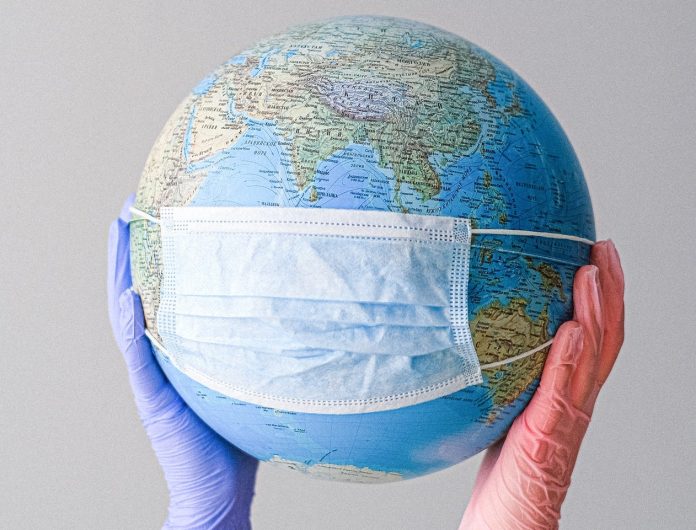At the time of writing (24th. September, 2020) over 200 countries have been visited by the Coronavirus pandemic contributing to a total of almost 32 million infections and one million deaths. The global pandemic has shifted the tectonic plates of an interconnected and interdependent world, with seismic repercussions at human, societal and economic levels. It has underlined the fallibility of human constructs.
The report card, thus far, of the nine month old virus makes chilling reading; Economic data point to the World economy heading for its steepest plunge in living memory; there are increasing North/South and East/West divisions; geopolitical fault lines are expanding; multilateralism and international cooperation are undermined; Inequalities are rising and societies remain under tension; the fragility of lives, economies and societies have been underscored by the Pandemic virus.
The crisis has exacerbated many of the fault-lines that beset the world economy. Indebtedness is even higher, wealth inequality more extreme in countries such as the US, and globalisation is now in retreat. The Coronavirus pandemic has broken once immutable laws and exposed the fragility of so much that was taken for granted. A once accessible and small world with unimpaired mobility now seems vast again from quarantined ‘prisons’ with little travel by air or sea. States have unilaterally closed their borders and imposed export bans.
Other analyses posit that the Corona pandemic has frozen and interrupted a world, whose dynamics will be altered profoundly, and might witness epiphanies of renewed values, pared expectations and increased solidarity. Responses to the virus in many parts of the world have seen a momentous shift from competition to cooperation, from individualism to group endeavour and from privatised to public and state means of working together. The crisis is an argument for closer cooperation, stronger international structures, more flexible and robust supply chains and lower barriers – for goods and people – between partners. The crisis is rehabilitating the idea of a global community, not undermining it.
What then of the European Union’s response?
The first movements in that response are outlined in the recent European Commission Communication – ‘Joint communication to the European Parliament, the Council, the European Economic and Social Committee and the Committee of the Regions’ that frames the approach with multilateralism at its core.
“The EU supports international cooperation and multilateral solutions in this crisis. We are taking a leadership role in the coordination efforts undertaken by the United Nations, the G20, the G7, the International Labour Organisation (ILO) and the international financial institutions. The EU will put its full weight behind the UN Secretary General’s efforts to coordinate UN-wide response.
The EU’s response follows a Team Europe approach. It draws contributions from all EU institutions and combines the resources mobilised by EU Member States and financial institutions, in particular the European Investment Bank (EIB) and the European Bank for Reconstruction and Development (EBRD). Working together, Team Europe can muster a critical mass that few others can match.
In a message to celebrate the International Day of Multilateralism and Diplomacy for Peace, Europe’s adherence to multilateralism was reaffirmed: ‘As we tackle the Pandemic crisis the European Union reaffirms its longstanding commitment to international cooperation and to the rules-based international order, with the United Nations at its core. The coronavirus pandemic reminds us how interconnected we are and how crucial multilateral cooperation is. To win the battle against a virus that knows no borders, there is no other option than to join efforts to find global solutions. Multilateralism is the only effective way to face a threat with which no country can cope on its own and which affects us all. Nobody will be safe in any country as long as the pandemic rages in different parts of the world.’
In Commission President Ursula Von Der Leyen’s recent State of the Union address, she took this torch of defiance and hope and highlighted the opportunities for Europe:
“This virus has shown us just how fragile our community of values really is – and how quickly it can be called into question around the world and even here in our Union. But people want to move out of this corona world, out of this fragility, out of uncertainty. They are ready for change and they are ready to move on. And this is the moment for Europe. The moment for Europe to lead the way from this fragility towards a new vitality.
I say this because in the last months we have rediscovered the value of what we hold in common. As individuals, we have all sacrificed a piece of our personal liberty for the safety of others. And as a Union, we all shared a part of our sovereignty for the common good. We turned fear and division between Member States into confidence in our Union.
This is our opportunity to make change happen by design – not by disaster or by diktat from others in the world. To emerge stronger by creating opportunities for the world of tomorrow and not just building contingencies for the world of yesterday. We have everything we need to make this happen. We have shaken off the old excuses and home comforts that have always held us back. We have the vision, we have the plan, we have the investment. Europe must continue to protect lives and livelihoods.”
Europe now has a unique opportunity to lead the world out of this crisis as a major power on the multilateral stage — but only if it remains united. United in its approach, united in its own many-roomed house, and united in its vision of the new world it wants to lead. The example Europe set of casting aside differences for the greater good over 70 years ago should be the guiding principle again now. A concerted, cohesive and cooperative Europe is the actor the world stage needs as it faces this unprecedented challenge. Self-interest should have no place in this brave new world.
Thomas Mc Grath
Our Irish Journalist


